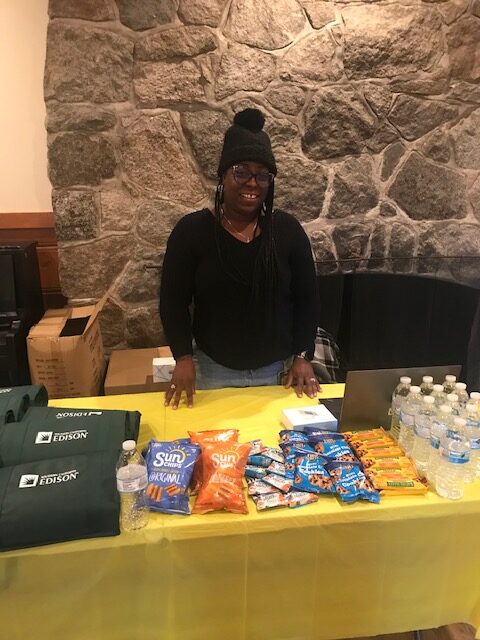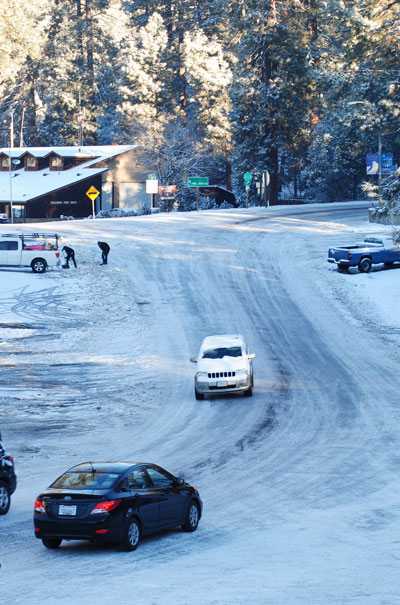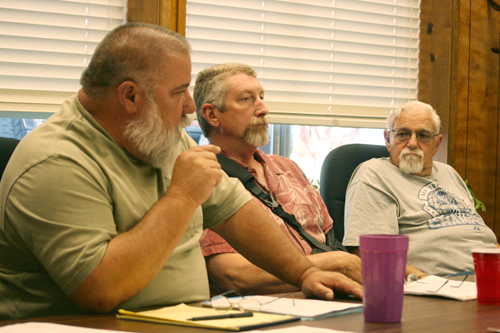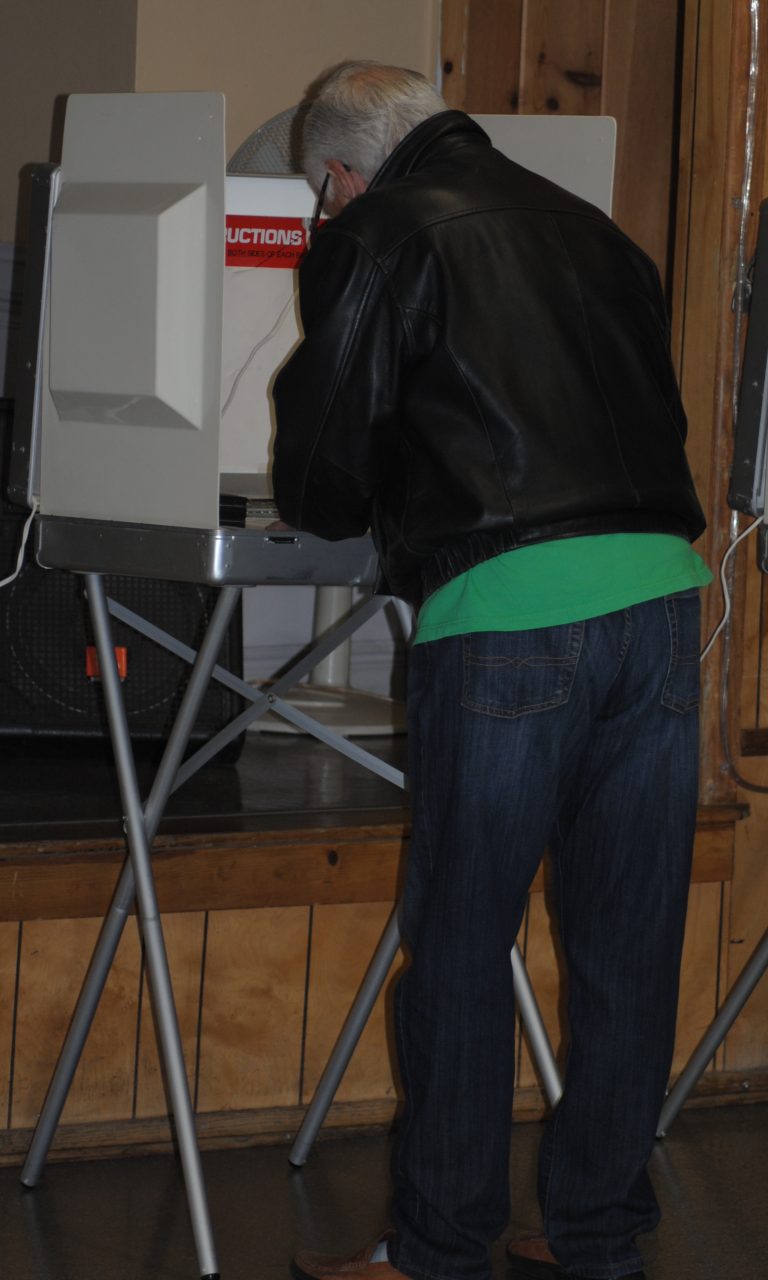As high winds swept the southland, a Public Safety Power Shutdown affected Hill communities starting Tuesday night, January 7. Town Hall became a warming and charging station, with two Southern California Edison employees and a security guard“prepositioned” before the power went out. Robin Willis, who works in Customer Outreach was there handing out snacks, water and blankets, as well as bags of power outage essentials.

These bags included a pre-charged solar/usb power bank for recharging phones and other electronics, masks and gloves, disinfectant wipes and hand sanitizer gel, an LED “emergency bubble ball, which functions as a normal LED bulb but has an internal battery that allows it to be used as a flashlight.
Also in the bags was information about SCE’s medical baseline program, which discounts power for those with electrically operated medical or mobility equipment in their homes, and PSPS alert system sign up.
`To receive notification in advance of shutdowns, call 1 (800) 655-4555 or visit www.sce.com/pspsalerts. You do not need to have an account with SCE to sign up. Customers enrolled in the Medical Baseline program and who live in Tier 2 or 3 high fire risk areas are also eligible for their Critical Care Battery Backup program, which gives out free portable battery backups to power medical equipment during emergencies. Idyllwild, Pine Cove and Mountain Center are all within the Tier 3 or “extreme” fire threat area. Learn more at sce.com/ccbb.
For the rest of us in Tier 2 and 3 areas, there are rebates to help defray the cost of portable power stations ($150) and generators ($200.) This program is explained at marketplace.sce.com. The Marketplace offers comparisons and recommendations for many energy saving products. There are also cash incentives for customers who invest in battery storage or generation equipment, see sce.com/sgip.
Other PSPS programs include Hotel Assistance, which offers discounts at participating lodging locations, see.com/hotel-discounts. SCE also partners with 211, which offers nationwide referrals to local resources including social services. Dial 211, text “psps” to 211211, or visit 211now.org.
There was also a four-page handout explaining the PSPS decision making process, starting with weather forecasts and evaluation of wild fire fuel moisture levels, proceeding through identification of circuits that might need to be turned off, the actual shutdowns, and restoration of service. At each stage there are many “decision points” as incident commanders, field crews and the grid operation team attempt to minimize the areas impacted while maximizing safety.





